Deputy Minister of Finance Cao Anh Tuan said the Law was built with a new approach, giving more power to state-owned enterprises; increasing the initiative of enterprises in making investment decisions.
Separate and define the state management function from the function of capital and enterprise owners; reduce direct intervention of the owner's representative agency; strengthen the assignment and decentralization associated with inspection and supervision to enhance autonomy and self-responsibility.

In particular, the State, in its role as an investor, exercises rights, responsibilities and obligations regarding its capital contribution in an enterprise equally with other investors.
State capital management at enterprises is carried out through the direct owner's representative or the state capital representative.
The Ministry of Finance has reported to the Government leaders a list of documents detailing the implementation of the Law, including 5 Government decrees, of which 3 decrees were drafted by the Ministry of Finance.
The Government has allowed the application of simplified procedures in the development and promulgation of decrees detailing the Law.
According to the representative of the Ministry of Finance, the draft decree stipulates a number of contents on the management and investment of state capital in enterprises, including notable contents such as: Development strategy, annual business plan, re-determination of charter capital, capital mobilization, capital lending, investment, sale of fixed assets of enterprises, preservation and development of enterprise capital, transfer of investment capital of enterprises, transfer of investment projects; distribution of after-tax profits, restructuring of enterprise capital.
Meanwhile, the draft decree regulating supervision, inspection, assessment, classification, reporting and information disclosure has many new provisions, overcoming past limitations.
For example, supervision and inspection are carried out at three levels: the Government, the owner's representative agency and the enterprise's internal supervision; specific instructions on implementation, supervision and inspection responsibilities for each supervisory entity.
Assigning targets, evaluating and classifying enterprises in a quantifiable manner; ensuring feasibility in assigning plans and evaluating; enhancing the responsibility of the board of members, company president, and representative of state capital in closely following the production and business situation, forecasting development trends and market fluctuations.
.jpg)
The direct owner's representative, the state capital representative, and the controller are evaluated according to 4 levels: Excellent, good, completed, and incomplete.
The draft decree on restructuring state capital invested in enterprises fully institutionalizes viewpoints and policies on innovation, restructuring and development of state-owned enterprises and enterprises with state capital; overcoming shortcomings, limitations and bottlenecks in the recent past.
Notably, the draft decree has amended and supplemented a number of contents on land use plans after equitization, requiring equitized enterprises to register transactions on the stock exchange to comply with regulations on management and use of public assets, regulations of the Securities Law, etc.
The new contents contribute to unlocking existing resources in state-owned enterprises, creating a complete legal framework for the operations of state-owned enterprises.
According to the initial plan, the Law on Management and Investment of State Capital in Enterprises will take effect from January 1, 2026. However, in the spirit of promptly removing difficulties and obstacles and maximizing resources, the Government has agreed to submit to the National Assembly to accelerate the Law's implementation from August 1, 2025.
Source: https://hanoimoi.vn/khoi-thong-nguon-luc-doanh-nghiep-nha-nuoc-708542.html





![[Photo] Prime Minister Pham Minh Chinh receives Lao Minister of Labor and Welfare Phosay Sayasone](https://vphoto.vietnam.vn/thumb/1200x675/vietnam/resource/IMAGE/2025/11/11/1762872028311_dsc-2246-jpg.webp)
![[Photo] Chu Noodles - the essence of rice and sunshine](https://vphoto.vietnam.vn/thumb/1200x675/vietnam/resource/IMAGE/2025/11/11/1762846220477_ndo_tl_7-jpg.webp)



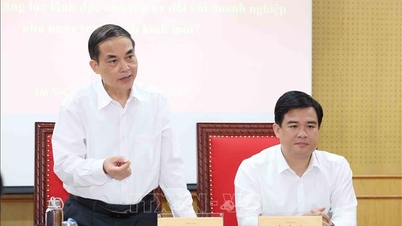

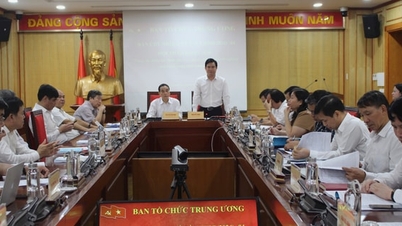
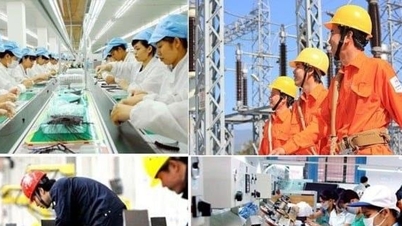

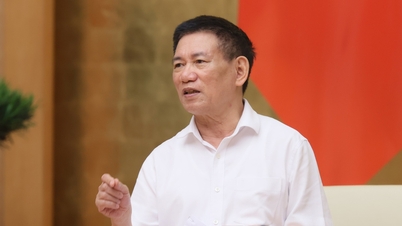










































































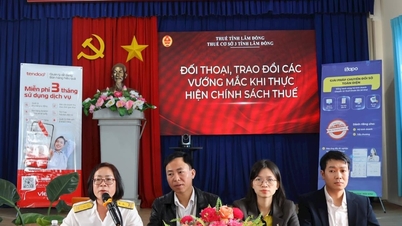






![Dong Nai OCOP transition: [Article 3] Linking tourism with OCOP product consumption](https://vphoto.vietnam.vn/thumb/402x226/vietnam/resource/IMAGE/2025/11/10/1762739199309_1324-2740-7_n-162543_981.jpeg)








Comment (0)